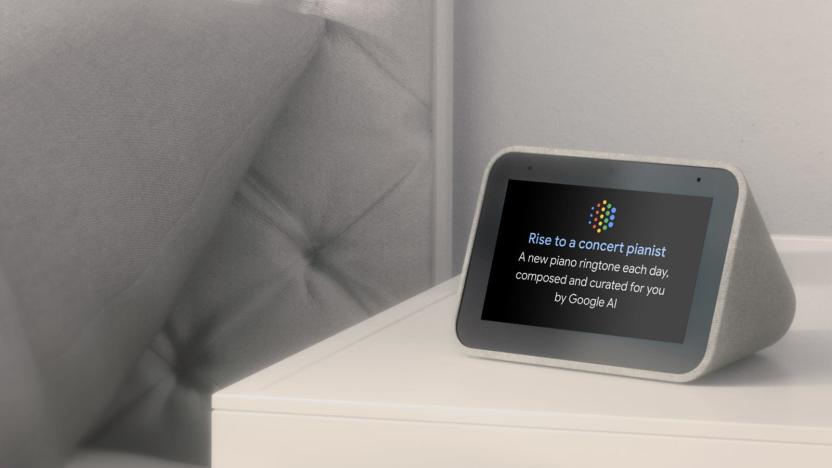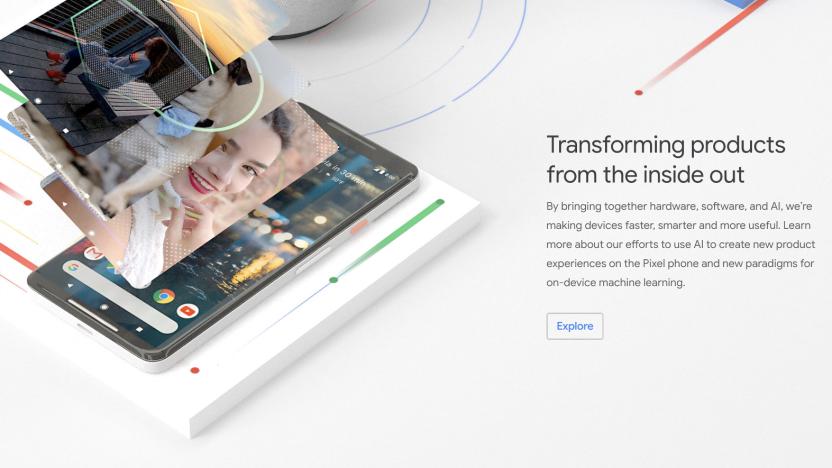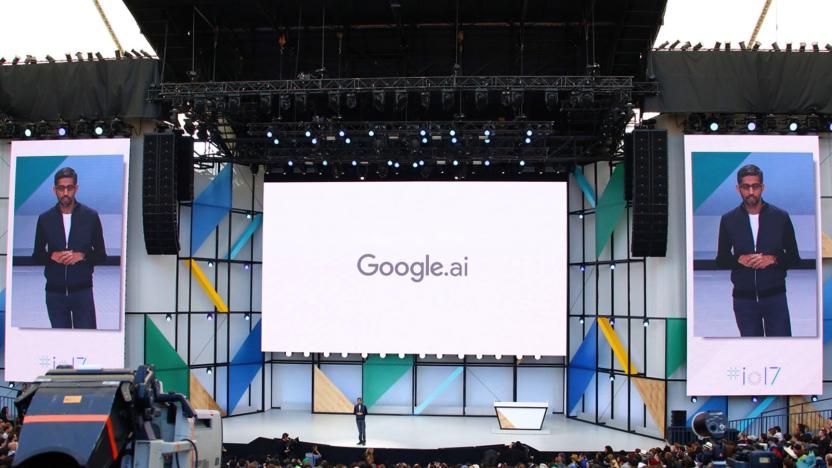googleai
Latest

Google Assistant can create alarms based on weather and time of day
An update on its way to Lenovo Smart Clock will add a Google Assistant option that can switch up the alarm ringtone based on factors such as the time of day and the weather. In fact, Google's AI can create and curate the piano ringtones for you.

Google AI can spot advanced breast cancer more effectively than humans
Google has delivered further evidence that AI could become a valuable ally in detecting cancer. The company's researchers have developed a deep learning tool that can spot metastatic (advanced) breast cancer with a greater accuracy than pathologists when looking at slides. The team trained its algorithm (Lymph Node Assistant, aka LYNA) to recognize the characteristics of tumors using two sets of pathological slides, giving it the ability to spot metastasis in a wide variety of conditions. The result was an AI system that could tell the difference between cancer and non-cancer slides 99 percent of the time, even when looking for extremely small metastases that humans might miss.

Google's voice-calling AI could handle your next insurance claim (updated)
It sounds like Google's scary-natural AI voice calling could wind up in a call center. An unnamed insurance company has shown interest in the tech, according to The Information, where Duplex could "handle simple and repetitive customer calls" before handing things over to a human when the conversation gets more complicated. Surely, no one wants to hear "I don't understand that question, but I'm learning more every day" when you're trying to make a claim, let alone asking for a specific song to play.

Google’s AI advances are equal parts worry and wonder
I laughed along with most of the audience at I/O 2018 when, in response to a restaurant rep asking it to hold on, Google Assistant said "Mmhmm". But beneath our mirth lay a sense of wonder. The demo of Google Duplex, "an AI system for accomplishing real-world tasks over the phone," was almost unbelievable. The artificially intelligent Assistant successfully made a reservation with a human being over the phone without the person knowing it wasn't real. It even used sounds like "umm," "uhh" and tonal inflections to create a more convincing, realistic cadence. It was like a scene straight out of a science fiction movie or Black Mirror.

'Google AI' is the new home of Google's research and AI divisions
Google Research is no more. The tech titan has combined all of its Google Research projects and artificial intelligence efforts under one umbrella simply called "Google AI." Mountain View says it unified "all the state-of-the-art research happening across Google" under one straightforward name because its work in AI has been core to the development of all the machine learning techniques it's implementing in its products and platforms. The company has conducted tons of AI research and development over the years, including a recent one in which it launched websites where you can talk to books and play word-association Tetris.

Google launches a massive open AI division
Today at Google's I/O developer conference, CEO Sundar Pichai greeted the assembled press and attendees with news that the company will be focusing heavily on AI both for its services and research. The new Google.ai site and division will focus on artificial intelligence, deep learning and building the tools to make that work possible.

Google DeepMind AI learns to play 'Montezuma's Revenge'
Back in 2015, Google-owned company DeepMind gave its AI access to a series of Atari 2600 games, 49 of which it learned to play its own. One particular title was a bit too complicated for the technique it used, though: Montezuma's Revenge. Now, the team has figured out how to make it "curious" enough to want to win the game. They programmed artificial curiosity into the AI by giving it rewards for exploring more of the platformer's world. The version of the AI programmed with artificial curiosity managed to explore 15 rooms out of 24 and to beat the first room in only four tries. An older model that didn't have incentive to play the game more only explored two rooms.





